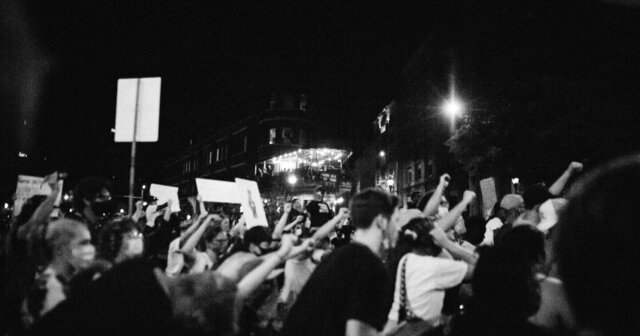
America’s adversarial political process is supposed to produce good results. The candidates offer different opinions, visions and proposals. The person with the most compelling ideas wins office and gets to enact his or her agenda.
Yet this is not how the political debate is working. Instead, candidates take advantage of a quirk in the adversarial process. Politicians don’t need to have the best ideas and most persuasive points. Candidates can also win if voters think it is unfathomable to vote for the person on the other side.
Yes, unfathomable. Many voters find it impossible to understand why someone else may opt for another candidate. They prefer to think that any rightminded and ethical person would instantly reject that candidate. They believe that no one should take the other candidate seriously.
As a result, the current national debate is awful. The political fight is no longer about deciphering what people want. If enough people think the other person is unacceptable, that’s all you need to win in a two-party system. Candidates engage in mutual vilification, and their only message is that the other guy is going to lead us into misery.
There are reasons why the current debate is intolerable, and the situation is unlikely to change anytime soon. But it doesn’t have to be this way. As individual voters, we can make things better by applying a little bit of good will.
Political institutions have strong incentives to entrench voters against a side rather than persuade them with good ideas.
Television news, political talk radio and social media encourage polarization. This is for market reasons. People pay more attention when upset and outraged. It is easy to get people animated over what terrible things the other side has done. It is harder to get people upset over well-thought-out political stances.
Media that get the most eyeballs are also supported by advertising. They get more money when more people tune in. So constant rage is profitable. Mutual vilification feels especially scummy when the people stoking the rage are doing it to sell more Medicare Advantage plans, gold coins and other products frequently featured on cable news channels.
Political parties also encourage mutual vilification. It’s hard to convince other people to vote for you. It’s easier to get people who already agree with you out to the polls. Upset and angry voters vote in each election and volunteer for campaigns.
Voters get an ego boost out of mutual vilification. When you believe the other side is unacceptable, you know that you are on the side of the angels. The people on the other side are not only mistaken; they’re downright bad, and they have ill intentions. Voting against the bag guys makes you feel good.
Despite all of the incentives for mutual vilification, it contains major and obvious weaknesses. Notice that neither party constitutes a majority. One third of America is on one side, one third on the other, and the last third is indifferent — give or take. Getting a third of America to hate another third doesn’t add up to a majority. It is a losing strategy.
Mutual vilification also creates the mirage that the people on the other side are all awful. This isn’t true. Most Americans are normal people who want good things for the country.
There are real villains out there, but one third of America is not plotting to destroy the country and eliminate the opposing third.
Yes, there are people who believe things that are wrong and who want policies that are bad. But that does not mean that all of the people on the other side are wrong and bad.
To win elections, politicians have to convince that third of Americans who aren’t on their own side but also aren’t on the other side.
We should treat others like reasonable adults. Our fellow citizens are neighbors to be persuaded rather than obstacles to be overcome.
When we come to the political debate with respect, we can have a discussion about what government should do and why. We can listen to arguments about what to do, and we can consider the evidence to help us understand what is right and good and beneficial.
When we extend goodwill and receive it in return, we act the way American government is supposed to work. It’s a much better country where our fellow citizens respect our views and seek to persuade us in order to move the country forward.
If we do, elections become a good marker about what we should do about the many problems facing our country.

The Mackinac Center for Public Policy is a nonprofit research and educational institute that advances the principles of free markets and limited government. Through our research and education programs, we challenge government overreach and advocate for a free-market approach to public policy that frees people to realize their potential and dreams.
Please consider contributing to our work to advance a freer and more prosperous state.

Donate | About | Blog | Pressroom | Publications | Careers | Site Map | Email Signup | Contact